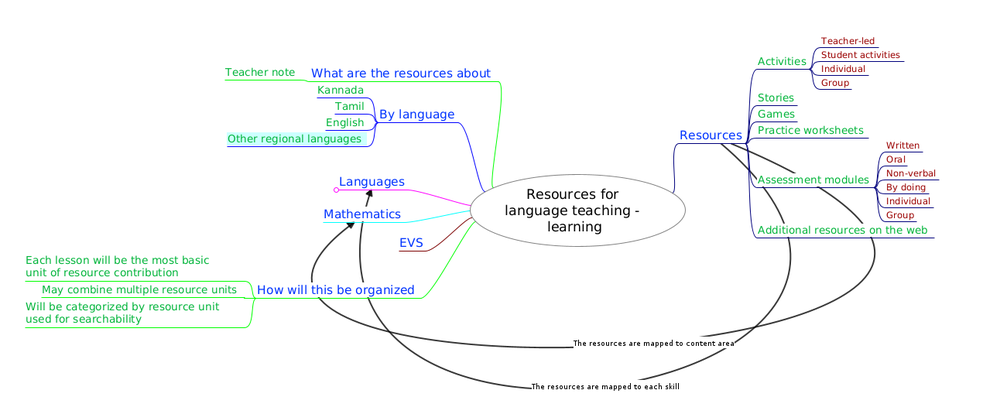Difference between revisions of "Educational resource repository"
| Line 20: | Line 20: | ||
| style="width: 50%;" |{{Color-box|3|Mathematics resources|While there is a push for schools to reopen and there is talk of accelerated learning, It is not meaningful to think of a bridge course and try to deliver all the lessons of an entire academic year and expect students to catch up on the grade-level mathematics. We need to develop resources a sequence of lessons for the core areas of school mathematics - focusing on Classes 1-6. [[https://teacher-network.in/OER/index.php/Resources_for_mathematics Read more...]]}} | | style="width: 50%;" |{{Color-box|3|Mathematics resources|While there is a push for schools to reopen and there is talk of accelerated learning, It is not meaningful to think of a bridge course and try to deliver all the lessons of an entire academic year and expect students to catch up on the grade-level mathematics. We need to develop resources a sequence of lessons for the core areas of school mathematics - focusing on Classes 1-6. [[https://teacher-network.in/OER/index.php/Resources_for_mathematics Read more...]]}} | ||
|- | |- | ||
| − | | style="width: 50%;" |{{Color-box|12|Environmental Studies and Ecology|This is an opportunity for us to re-imagine the way learning happens in schools, focusing on a more integrative approach. Observing the nature and local environment and bringing it into the curriculum both allows the learning to be contextual while also providing pegs for building numeracy and literacy skills. [[https://teacher-network.in/OER/index.php | + | | style="width: 50%;" |{{Color-box|12|Environmental Studies and Ecology|This is an opportunity for us to re-imagine the way learning happens in schools, focusing on a more integrative approach. Observing the nature and local environment and bringing it into the curriculum both allows the learning to be contextual while also providing pegs for building numeracy and literacy skills. [[https://teacher-network.in/OER/index.php?title=Environmental_Studies_and_Ecology Read more...]]}} |
| style="width: 50%;" |{{Color-box|8|Strategies for mixed level teaching|These resources are intended as exemplars of how lessons can be developed to address students at multiple levels of learning - using content areas in the case of mathematics and environmental studies. [[https://teacher-network.in/OER/index.php/Developing_mixed_level_teaching_learning_plans Read more...]]. | | style="width: 50%;" |{{Color-box|8|Strategies for mixed level teaching|These resources are intended as exemplars of how lessons can be developed to address students at multiple levels of learning - using content areas in the case of mathematics and environmental studies. [[https://teacher-network.in/OER/index.php/Developing_mixed_level_teaching_learning_plans Read more...]]. | ||
}} | }} | ||
Revision as of 19:31, 3 October 2021
|
An introduction to the education resource repository With governments across the country tentatively beginning to reopen schools it is very important for us to look at ways of supporting teachers and school administrators to resume teaching- learning practices. In the current context, children are coming back to school after a very abnormal disruption, and in many cases after major disruptions in their lives. While there are many aspects of this school reopening that would be like the annual reopening after vacations, there are some very crucial ways in which it would be different. Additional resources and tools are needed for responding to this requirement – for teachers, students, parents and school administrators. These resources also need to be flexible and allow for the school system to respond to the immediate requirement as well as for responding to any further school disruptions/ changes . While teachers are expected to create and use resources to respond to the situation, they have not had any special preparation to do so. The repository is intended to be a participatory, supportive space for meeting this need. [More] |
|
| ||
|
|
|
| ||
|
|
|
|
